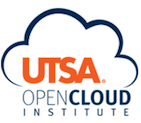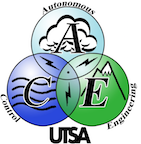Research Interests
- Quantum Information Theory - Quantum Key Distribution
- Advanced Computation Frameworks in Cloud Computing
- Swarm-based robotics and sensor networks
Doctor Prevost's technical interests and experience are concentrated in the fields of cloud computing and control systems. He has over twenty years experience leading engineering and software development teams in developing complex systems.
As cloud computing has gained popularity so have the perceived benefits and challenges. New paradigms are being developed that will allow the cloud to encroach on the traditional HPC computing architectures. Data Analytics using Map/Reduce and a distributed file system are making it possible to achieve performance in parallel across inexpensive systems that rivals that of the supercomputers of only a few years ago. The cloud also has a bipolar effect on efficiency. Although it is a more efficient use of physical systems, the economics of scale associated with cloud computing has dramatically driven up the total carbon footprint of providing cloud resources to end users. Cloud computing also allows us to create complex computation platforms for advanced Cyber-Physical Systems, such as sensor networks and swarm-based robotics.
This leads to the two primary areas of research that Dr. Prevost has been focusing: Leveraging Cloud and Enhancing Cloud.
In the area of leveraging the cloud, one of Dr. Prevost's principle research areas is in enabling research to happen at both higher volume and velocity by creating a framework for the auto-deployment of cloud compute, storage, and networking resources in a domain-specific manner. The framework will also automatically layer the required OS and software configuration necessary to perform the domain-specific research. One example of this approach is the auto-configuration of a Robot OS (ROS) cluster for managing swarm-based robotics. Another area that would benefit from a framework to manage the procurement, deployment and configuration required for research is in the area of BioInformatics (brain research, genomics, proteomics, etc).
Enhancing Cloud involves understanding the interaction between the physical and virtual resources inside the datacenter. Larger datacenters create economics of scale that benefits cloud computing more than the traditional hosted deployment models. This has caused the energy, and carbon, footprint of the modern datacenter to rise dramatically. Dr. Prevost's research in this area was focused on techniques of predicting the demand for cloud services and algorithms of deployment of the virtual cloud resources in a manner that would minimize energy consumption while maintaining all existing service level agreements. This involves creating novel algorithms for optimal virtual resource placement as well as investigating leveraging both the capabilities of the systems in the cloud as well as the systems available remotely.
Advanced in Quantum Information Theory have led to the use of Quantum Key Distribution in securing communication channels. Dr. Prevost is working with other researchers on creating security frameworks for cyber-physical systems (CPS), such as Cloud-Based 5G Cellular Communication and swarm-robots and/or sensor networks.
Increasingly, advanced machine learning algorithms are being leveraged in creating complex prediction or control heuristics for CPS.
Institutes and Research Labs

OCI is committed to research, education and industry partnerships that promote the investigation in and use of cloud computing in academia. By partering with key industry players, such as Facebook, Rackspace, AMD, and Yahoo, we have established labs, training and endowments that promote cloud at UTSA and San Antonio. Our goal is to have San Antonio known as Cloud City, USA.

In the CLEAR lab, we leverage cloud architecture to collaborate with cross-discipline researchers to discover new ways to increase the velocity of scientific and engineering research through cloud-based compute and storage technologies.

The University of Texas at San Antonio, Autonomous Control Engineering Laboratories are the proud home of the following teams: Renewable Energy, Autonomous Water Vehicle, Unmanned Aerial Systems / UAV Competition and the Cloud computing.



